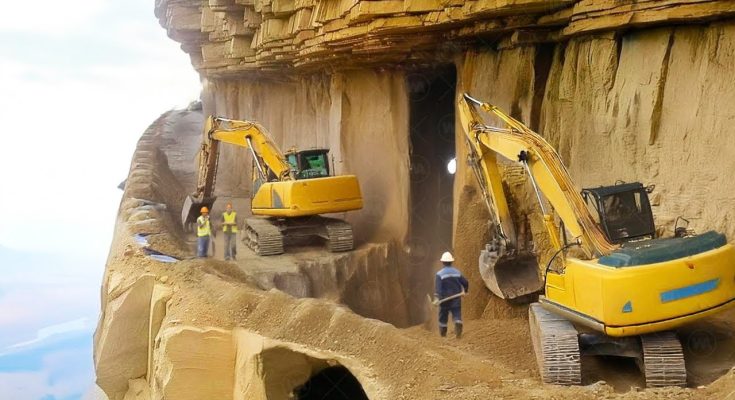April 7, 2025 — By Global Insights Desk
In a story that once sounded like science fiction, China embarked on one of the most ambitious engineering projects in human history—flattening over 700 mountains in the Loess Plateau region to build a futuristic city from scratch. Now, years later, the world is beginning to witness the stunning consequences—both positive and controversial—of the monumental reshaping of the Earth.
A Vision of Tomorrow
The project, launched in Lanzhou’s New Area, Gansu Province, aimed to create a vast, modern city with flat terrain suitable for infrastructure development. The Chinese government promoted it as a symbol of progress—transforming rugged, barren land into a fertile ground for economic growth. Billions of dollars were poured into leveling mountains, moving earth, and constructing roads, skyscrapers, and parks where there were once only peaks and valleys.
The World Watched with Skepticism
Environmentalists, geologists, and urban planners worldwide initially criticized the move. Concerns ranged from potential ecological disaster to soil erosion, water table disruption, and air pollution caused by dust and machinery. Some even predicted the city would become a ghost town.
But few predicted what would come next.
A City Rises—and So Does Its Influence
Today, the transformed landscape hosts a city that has grown rapidly, attracting industries, investors, and thousands of new residents. The flattened land enabled swift urban planning, and its central location created a new logistics hub for Western China. Some now call it the “Silicon Valley of the West,” as tech companies and research institutions have begun setting up operations there.
Green technologies, AI-powered infrastructure, and vertical farms fill the new metropolis, all part of China’s strategy to showcase itself as a leader in sustainable urban innovation.
The Price of Transformation
However, not all outcomes have been positive. Satellite data has shown altered weather patterns in the region, while local ecosystems have been disrupted, and nearby communities report changes in groundwater availability. Critics argue that the environmental costs may outweigh the gains.
Dr. Lin Qiao, an environmental scientist at Beijing University, said, “This is a classic example of short-term human ambition clashing with long-term environmental stability. We are in uncharted territory.”
A Global Conversation Ignited
The world is now grappling with a critical question: Should humanity reshape the Earth to meet its needs—or adapt to it?
The project has sparked global debate about geoengineering, sustainability, and the ethics of large-scale land modification. While China celebrates a successful urban miracle, others warn it may be a cautionary tale in disguise.
The Verdict? Still Unfolding.
As the city continues to grow and the long-term effects of mountain removal become clearer, the world remains captivated—and concerned. What China accomplished is nothing short of extraordinary. Whether it becomes a blueprint for the future or a symbol of unintended consequences is still up for history to decide.
VIDEO



